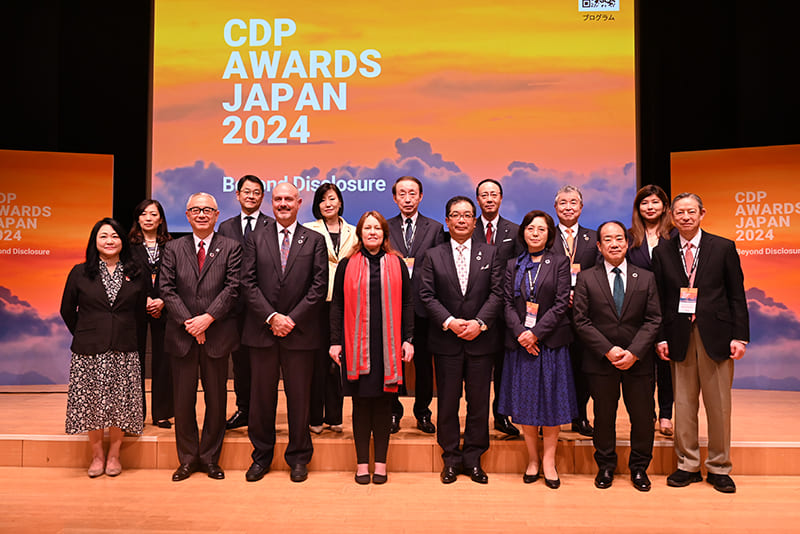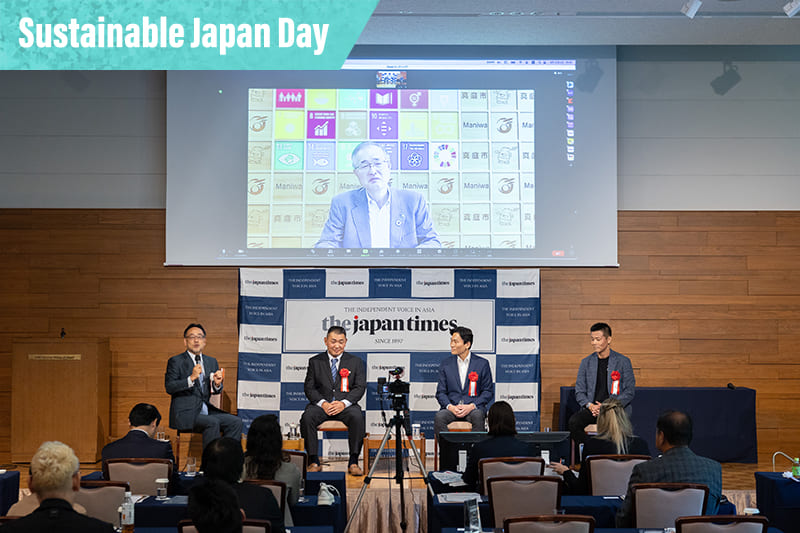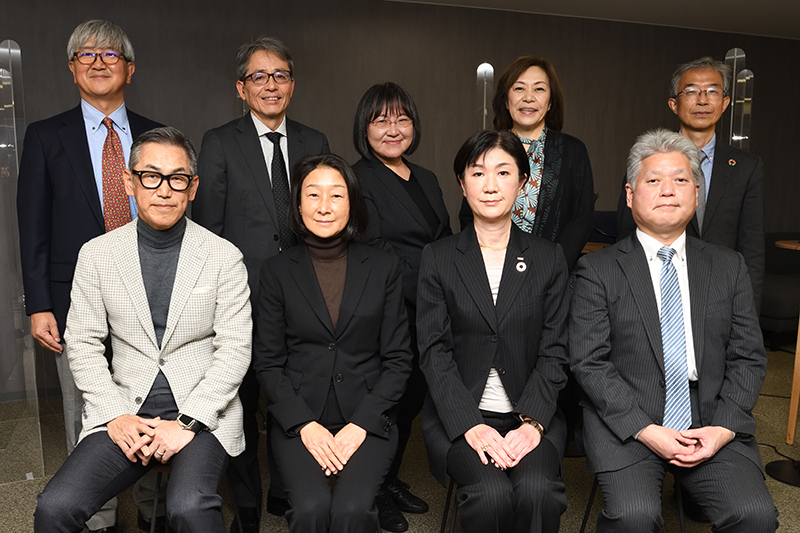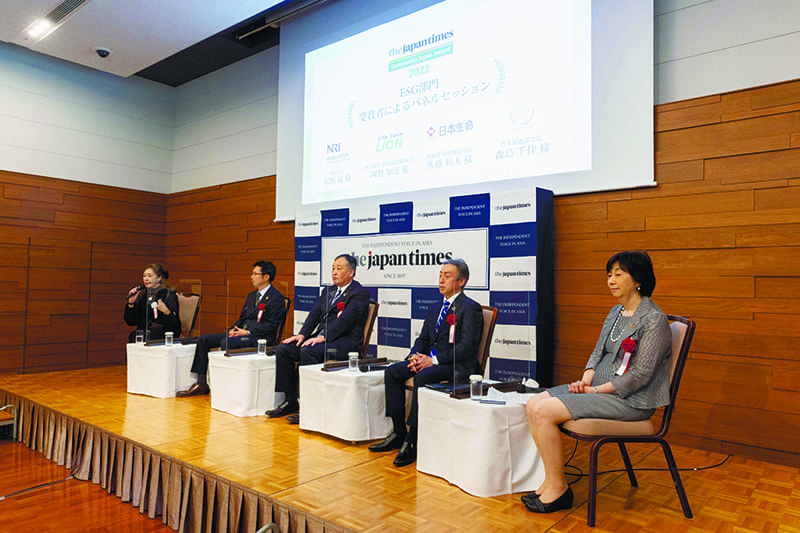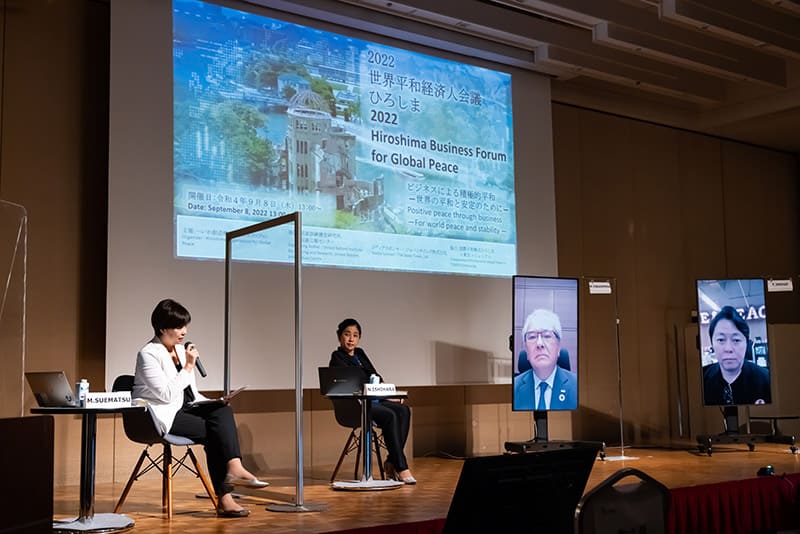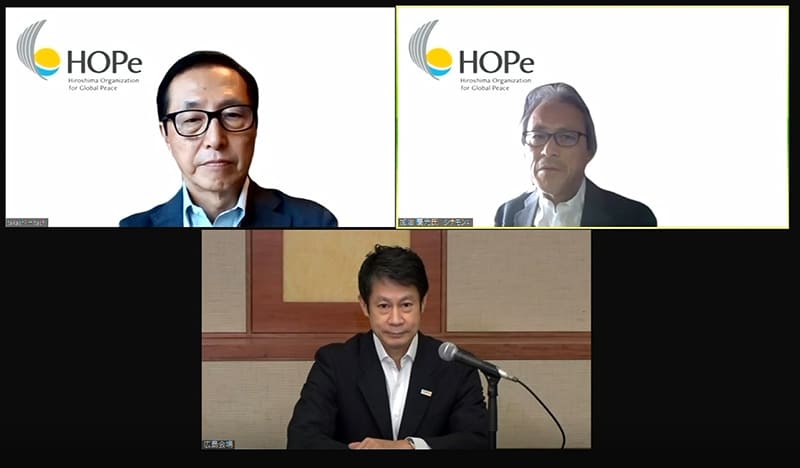October 02, 2023
Sustainable Japan Network advisers stress importance of satoyama
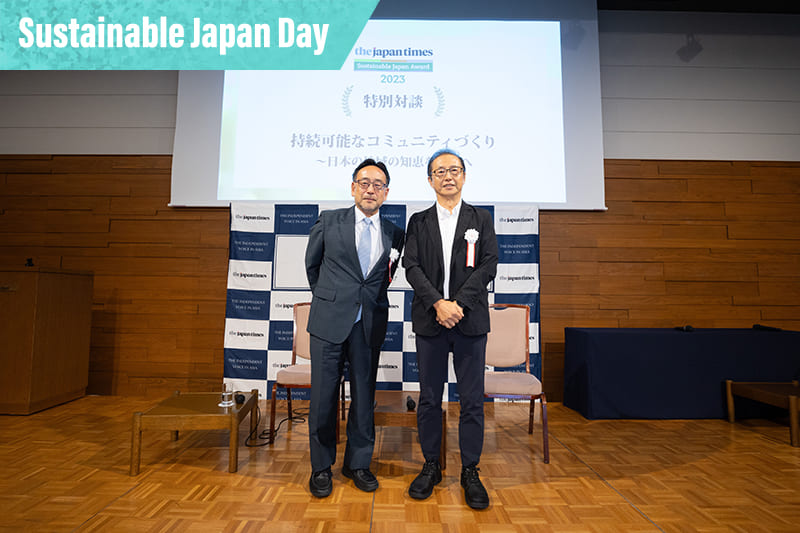
Kosuke Motani and Takashi Mitachi — advisers in the Sustainable Japan Network as well as judges for The Japan Times’ Sustainable Japan Award 2023 — took part in a special dialogue in the afternoon. Motani is also chief researcher at the Japan Research Institute Ltd., while Mitachi is a professor at Kyoto University’s Graduate School of Management. The talk centered around the future of Japan and its drive toward sustainability.
COVID-19 was mainly a problem for crowded urban areas. Similarly, issues of wealth inequality and child poverty are more apparent in large cities. However, Mitachi pointed out that most of the initiatives outlined at Sustainable Japan Day 2023 are mostly in smaller towns — one small company or nonprofit making strides toward sustainability within their local context.
Satoyama — mountains and woods shared and maintained by nearby residents — may be an idea born in bucolic parts of Japan, but the idea is taking hold in urban areas as well.
“Tokyo is very adaptable to historical change,” said Mitachi. When the Meiji government took power in 1868, the city’s population dropped by a third due to many of the warrior caste returning to their countryside homes. Tokyo did not want to leave these emptied areas to rot, so they were transformed into parks with mulberry trees and sakura viewing spaces, while some were even used for building universities.
“It’s incredible to witness the passion for green initiatives in Tokyo now,” Motani added. “If someone talks about making renewables 50% of the energy mix, Tokyo says, ‘We’ll do 100%.’” Tokyo’s immense population picking up on strategies that began in rural parts of Japan “must be a very effective approach to speed up the sustainable transition,” he suggested.
But how can we reconcile the drive of companies to relentlessly pursue profits with climate change? “The capitalist model in which companies thought only in terms of maximizing efficiencies by burning fossil fuels to create the cheapest products for consumers is over,” Mitachi said. In other words, we need a new model of capitalism that assesses business quality not only on ratios such as companies’ return on equity (ROE), but also after factoring in their environmental impacts. “Companies that are able to operate while also lowering carbon emissions would have a good ‘ROC’ — return on carbon,” he explained.
Having transparent data is key. According to Mitachi, Japan was the first nation that made Scope 1 emissions — those produced directly by a company’s in-house operations — publicly available. Since then, the concept of peripheral Scope 2 and 3 emissions has entered the decarbonization dialogue, and Mitachi believes that highlighting which companies are contributing to sustainability is the way to nurture value-added satoyama initiatives.
But realizing a sustainable society and economy requires labor from many motivated actors. “One critical issue is working-age limits,” Mitachi said. He said there are many healthy seniors who can and want to work but are excluded from hiring. He argued that this policy is antiquated and makes dealing with an aging society all the more of an uphill battle. “If retirees are able to work — at a children’s cafeteria, for instance — then they too can contribute to sustainability initiatives, and we need everyone working together,” he said.
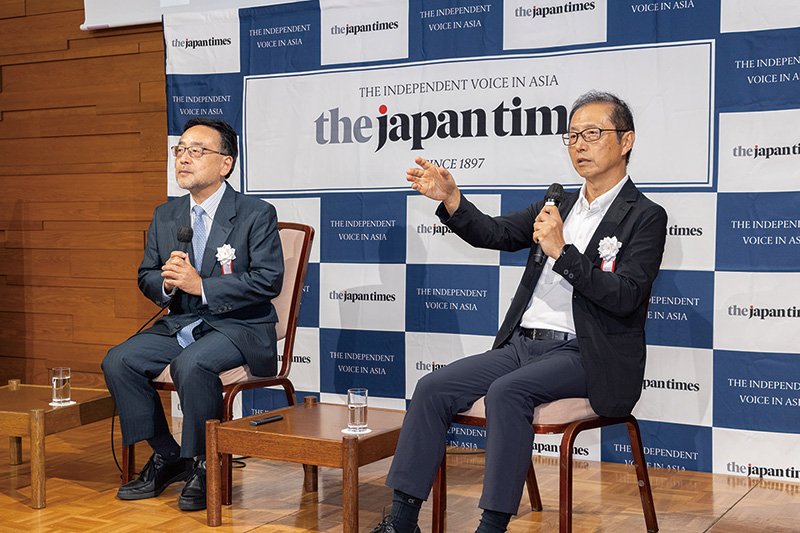
Kosuke Motani
Senior researcher at the Japan Research Institute
Takashi Mitachi
Professor, Graduate School of Management, Kyoto University

